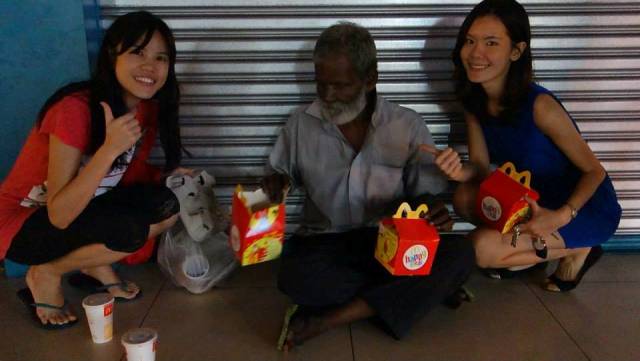
16 Aug 2013-
The cardboard sign says it all. I am Homeless. Please Help. The man, aged beyond his years, looks crumpled and dejected sitting on the pavement. I am on my way to the train station, and my train leaves in ten minutes. What do I do?
Jesus gave us the story of the Good Samaritan. That was a clear cut case of need—a Jew injured by robbers is helped by a Samaritan man who showed care and concern. But I am no fool, and I have some questions…
- What if this person wants money for illicit drugs?
- Can I realistically do anything useful to help him if I only see him once?
- Should I try and find them accommodation?
- What can I really do to be part of a longer term solution?
For a long time, my normal response was to avoid people I saw on the streets, especially if I was in a hurry or was conscious of money. More recently my attitude has changed and I look out for opportunities to talk to people on the street and offer help where it is possible. I think it is what Jesus would be doing.
Here is a helpful list of things to do when you next see someone in the street. However, this advice is only for people who are old enough and mature enough. If you're younger than 18, it's probably best to wait until you have an older person with you before approaching anyone.
1. Stop & listen
I think the key thing that the Good Samaritan did (and the other so called respectable religious people didn’t) was to stop and offer what help he could. I once thought I shouldn’t stop because I wouldn’t know how to help. But we don’t know about a person until we take the trouble to speak with them. Usually people on the street are more than happy to share a bit of their story. Spending the time to talk to someone to find out their situation and showing you care is valuable in itself.
2. Provide what you can
Where I live, it is illegal to beg on the streets, and it is generally best not to provide money. In some cases, the people’s needs may be complex—some will be facing mental health issues or addiction (gambling, alcohol or drug) issues, but it is important not to prejudge. There are ways to provide assistance. For example I have sometimes paid for meals, and in one case I purchased new footwear where a person’s shoes were damaged. It does mean taking time out of your day to do this, but this can also be an opportunity to strike up a conversation and learn more about their situation. You should not be pressured to provide what others are better able to provide. For example, there is a real need for safe accommodation for people on the street but it is not always wise for you to offer this yourself, especially if the person is under 18-years-old. It is okay (and important) that you keep strong boundaries. For example, you should not reveal personal contact information.
References for pictures:
http://inconue.files.wordpress.com/2010/06/london.jpg
http://gospelstreetministry.webs.com/street%20witness.jpg
http://adamlott.org/wp-content/uploads/2012/04/1st-try21.jpg
http://i1.wp.com/winniekepala.com/wp-content/uploads/543098_650129305000244_837407920_n.jpg








Leave a Reply